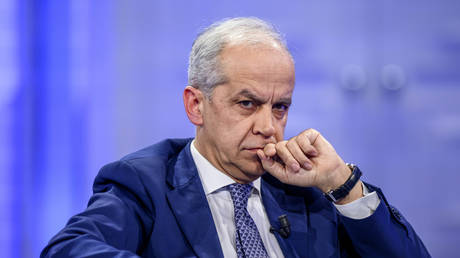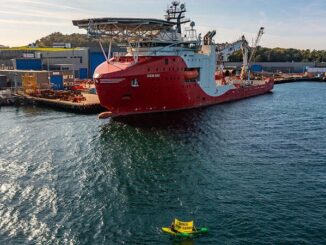
Rome wants Tunisia and Libya to facilitate the return of illegal migrants jointly
Italian Interior Minister Matteo Piantedosi has requested that Libya and Tunisia set up a joint control room to oversee the implementation of measures to facilitate the voluntary return of illegal migrants to their home countries. The two North African countries serve as major entry points for migrants and asylum seekers attempting dangerous journeys to Europe on overcrowded fishing boats.
Piantedosi made the proposal in Rome on Friday with his Tunisian counterpart, Kamal Feki, and Libya’s Emad Trabelsi. The trilateral conference was hosted by Rome to find urgent solutions to the current migration crisis in Italy and other EU member states, according to the Libyan Observer newspaper.
“Our three countries stand at the forefront of managing transnational challenges, which are of crucial importance for the stability of the Mediterranean region,” the outlet quoted Piantedosi as saying.
The Italian government has been grappling with a surge in arrivals, with the Interior Ministry reporting that nearly 130,000 migrants arrived by sea from North Africa in the country as of mid-September, nearly doubling the number for the same period in 2022.
In September, authorities declared a state of emergency on the southern island of Lampedusa, which is less than 90 miles from the Tunisian coast and roughly halfway between Libya and Sicily, after the UN’s migration agency announced that over 8,000 migrants had arrived in 199 boats in three days.
Italy’s prime minister, Giorgia Meloni, who came to power last year, has vowed to ramp up deportations and stop NGO vessels from bringing migrants to Italian ports.
In July, Meloni led the EU in signing a partnership agreement with Tunisia, pledging more than €1 billion ($1.12 billion) to help the North African country’s battered economy and reduce migration flows from the Tunisian coast to Europe.
However, Tunisian President Kais Saied declared last month that he would not accept the financial aid from the bloc because it violated the terms of the agreement. The EU had previously announced that it would disburse €127 million ($133 million) in aid to the country, with the majority of the funds earmarked for addressing migration issues, such as facilitating the deportation of migrants to their home countries.
Saied has stated repeatedly that Tunisia will not serve as a border guard for Europe and will not accept the settlement of immigrants.
Tunisia has experienced tensions in recent months in Sfax, its second-largest city and a transit point for migrants attempting to reach Europe. Authorities expelled hundreds of African migrants from the city earlier this year after a local was killed in clashes with migrants. The move triggered a humanitarian crisis on the Tunisian-Libyan border, with the discovery of over 25 bodies, according to aid groups and Tunisian officials.
In August, the two North African countries agreed to share groups of migrants stranded at the border.
Meanwhile, Libya is this week hosting an international migration conference in Tripoli, with labor ministers from Sahel and Saharan nations expected to attend, according to the Italian news agency NOVA.



